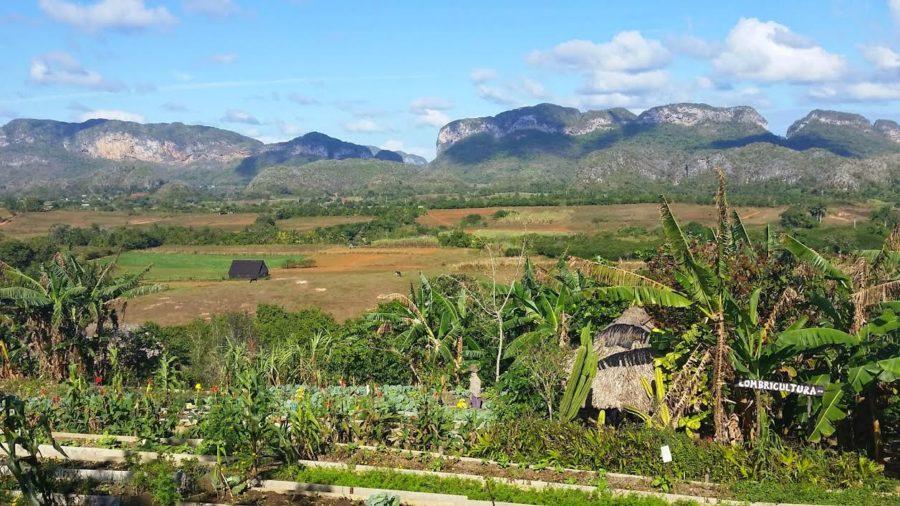Professor visits Cuba for research
March 26, 2015
It was a hot, humid day in Havana, Cuba. Rose Caraway patiently waited in the hotel lobby for her research group. On this day, they would continue their exploration of Cuba’s vast farming community, a community, like most in Cuba, that has adapted over the years to isolation from the outside world.
Caraway, assistant professor of philosophy and religious studies, came to Cuba to see this adaptation in action. Standing in the hall, Caraway felt a finger lightly touch her shoulder. Turning, she saw a beaming smile erupting from a young Cuban man.
“Viva Obama,” he said.
“He appeared to be very excited about this recent opening between the United States and Cuba,” Caraway said.
President Obama announced a new push toward cooperative interaction between Cuba and the United States on Dec. 17, 2014. This marked the beginning of an improvement in relations between the two countries, which have been rocky since 1959, when the Cuban Revolution resulted in a communist government takeover. Caraway visited Cuba in January as part of a research project, where she saw firsthand the reaction from the Cuban people. While a minority of Cubans shared concerns with increased relations with the U.S., a vast majority agree that this marks a step in the right direction, Caraway said.
“They are very interested in our history and learning about us,” Caraway said. “My general impression was a sense of excitement from the news.”
Caraway has been studying agro-ecology and sustainable development in Cuba throughout her career, consistently traveling to the country every few years. Because of the fall of the Soviet Union in 1991, Cuban farmers suffered from a lack of fertilizers. This required the farmers to develop organic methods of farming in order to keep up with food demands.
“Cuba lost 80 to 85 percent of its resources during that period, including a million tons of chemical fertilizers,” Caraway said. “They needed to come up with a different way of growing food.”
Through methods such as crop rotation, crop diversification and bio-fertilizers, Cuban farmers had reached near self-sufficiency, Caraway said. All of these techniques are shared through education to the coming generations, which Cubans stress.
“The entire country stresses local education,” Caraway said. “This is how they carry on what they have learned.”
Researching in Cuba first began for Caraway at the University of Texas, where she visited the country through a study abroad program. Caraway said her fascination with Cuba started in eighth grade, when a teacher shared experiences of visiting the country.
“She showed us slides of the field work she had conducted in Cuba at the time,” Caraway said. “She really sparked that interest for me back then.”
After gaining her master’s degree, Caraway moved to the University of Florida, where she earned her doctorate in religious studies.
“Rose has always been passionate about her research, so it’s always been really fun to hear about it,” said Robin Veldman, assistant professor of philosophy and religious studies, and Caraway’s classmate at the University of Florida. “She’s also an excellent salsa dancer.”
Caraway accepted her position at Iowa State in the fall of 2014. She plans to revisit Cuba in the coming months to continue her research.
“There still is a lot of work to be done, and I think these new developments between relations of the U.S. and Cuba will help with that,” Caraway said.
In the future, Caraway said she hopes to create her own faculty run study abroad program to Cuba for Iowa State, where she can inspire others to love the country the same way she did years ago.
“I think her current project will be a boon for the department and the university,” Veldman said.

















